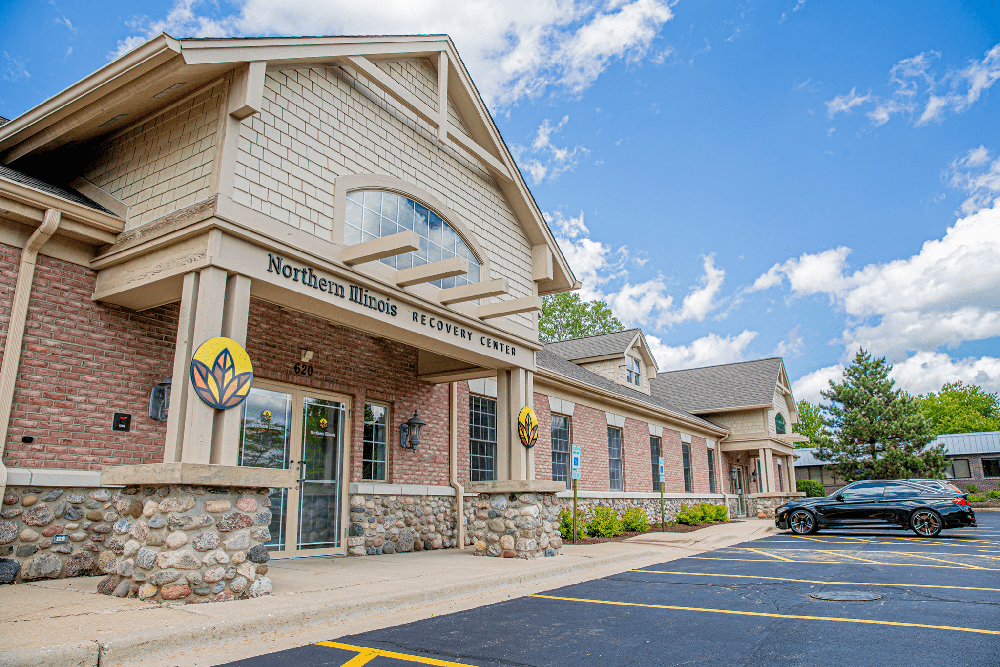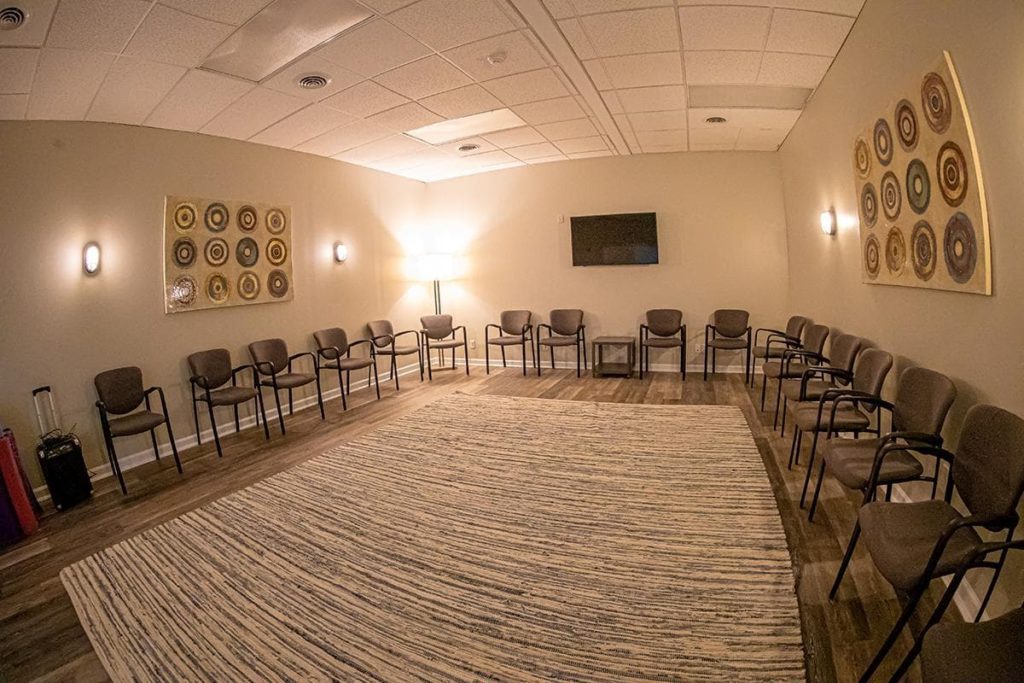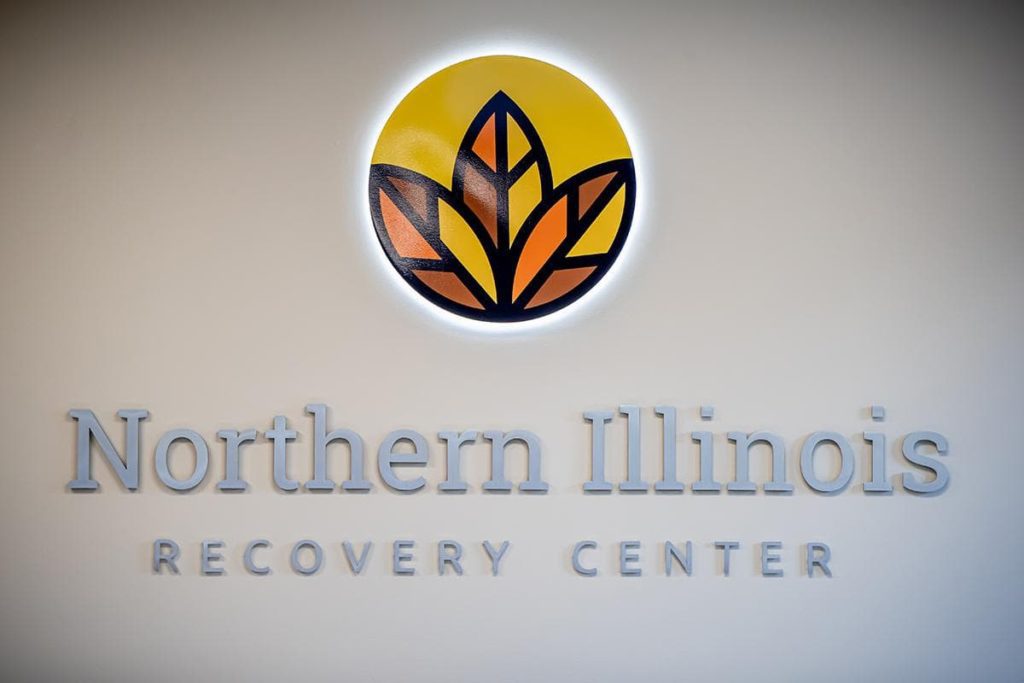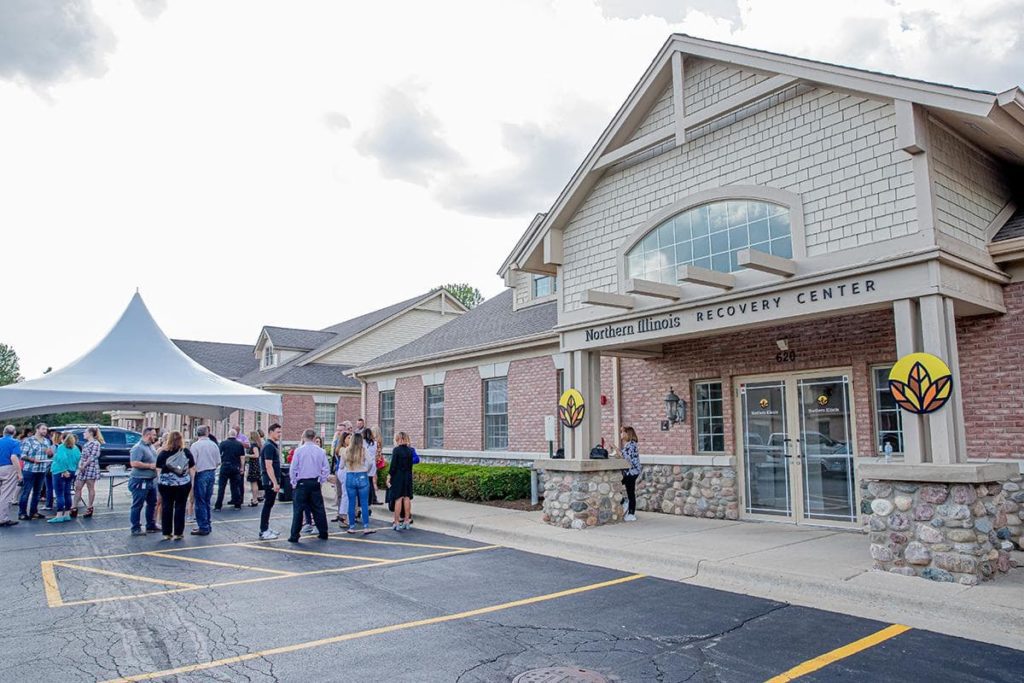This is why it is key for individuals and families to learn to recognize the signs of alcohol addiction and educate themselves on their options for support, like an addiction treatment center.
Through a continuum of care comprised of a variety of treatment services and therapies, our alcohol rehab in Illinois is dedicated to helping people effectively overcome the challenges they face with alcohol addiction.

Alcohol Use Disorder and How It Affects Your Health
- Stroke
- Liver damage
- Cardiomyopathy
- Alcohol hepatitis
- High blood pressure
- Various types of cancer (throat, mouth, liver, and larynx)
Not only does alcohol affect the body, but it also harms the brain. When people participate in regular drinking, they find it difficult to remember things. They also have a shorter attention span, which then leads to trouble learning. This is particularly harmful to those who are in college. When alcohol abuse disorder occurs, alcohol detox and admission to an alcohol rehab center are an essential part of saving an individual from this life-draining disease.
Alcohol Detox
Alcohol Withdrawal Medication
Quitting Alcohol Cold Turkey
Signs and Symptoms of Alcohol Dependence
Alcohol addiction, also known as alcohol use disorder (AUD), is characterized by an inability to control or stop drinking despite negative consequences. Here are the common symptoms:
Physical Symptoms
- Tolerance: Needing to drink more alcohol to achieve the same effects.
- Withdrawal Symptoms: Experiencing physical symptoms such as nausea, sweating, shakiness, and anxiety when not drinking.
- Neglecting Responsibilities: Ignoring responsibilities at home, work, or school because of drinking.
Behavioral Symptoms
- Craving: Having a strong desire or urge to drink.
- Loss of Control: Drinking more or for a longer period than intended.
- Unsuccessful Attempts to Quit: Making unsuccessful efforts to cut down or stop drinking.
Psychological Symptoms
- Obsessive Thoughts: Spending a lot of time thinking about drinking, obtaining alcohol, and recovering from its effects.
- Continued Use Despite Problems: Continuing to drink even when it causes physical, social, or interpersonal issues.
- Isolation: Withdrawing from friends and activities that were once enjoyable.
Social Symptoms
- Relationship Issues: Experiencing conflicts with family and friends due to drinking habits.
- Legal Problems: Encountering legal issues due to behaviors while intoxicated, such as driving under the influence.
Recognizing these symptoms early can help in seeking treatment and support to overcome alcohol addiction. If you or someone you know is struggling with these symptoms, professional medical advice and intervention are recommended.



Factors That Affect Alcoholism
- Genetic Factors
Research indicates that genetics can account for approximately 50% of the risk for developing AUD. If there is a family history of alcohol abuse, individuals may inherit genetic predispositions that make them more susceptible to addiction. - Environmental Factors
Children often learn behaviors by observing their parents and other family members. If they grow up in a household where heavy drinking is normalized, they might adopt similar attitudes and behaviors towards alcohol.Family environments characterized by high levels of stress, conflict, or trauma can contribute to the development of alcohol abuse. Individuals may turn to alcohol as a coping mechanism to deal with negative emotions or stressful situations observed or experienced in their family setting. - Social and Cultural Factors
Families can influence an individual’s attitudes and beliefs about alcohol consumption. If drinking is seen as an acceptable or necessary part of socializing and coping within the family, individuals are more likely to develop similar patterns. - Psychological Factors
Mental health issues, such as depression or anxiety, can also run in families. If these conditions co-occur with alcohol abuse within a family, the risk of developing both mental health disorders and alcohol dependency increases.
Understanding The Dangers of Binge Drinking
Impaired judgment and coordination due to excessive alcohol intake elevate the chances of accidents, injuries, and involvement in violent incidents. Binge drinkers are also more likely to engage in risky behaviors, such as unsafe sex, leading to unwanted pregnancies and sexually transmitted infections (STIs). Legal issues, including arrests for drunk driving and public intoxication, are common among those who binge drink.
The long-term health effects of binge drinking are equally alarming. Chronic binge drinking can cause severe liver damage, cardiovascular problems like high blood pressure and heart disease, and cognitive impairments, including memory loss and brain damage.
Dangers of Alcohol Withdrawal
Consuming too much alcohol isn’t good for anyone. However, this doesn’t mean that stopping alcohol use on your own is advisable. Regular alcohol abuse is a major concern due to how dangerous withdrawal can be. When a person stops using alcohol abruptly, the changes that happen to the body could lead to death if not properly managed. Symptoms of alcohol withdrawal can include:
- Fever
- Tremors
- Seizures
- Confusion
- Hallucinations
- Irregular heartbeats
Delirium Tremens
One major concern with unmanaged alcohol withdrawal is a condition called Delirium Tremens (DT). This condition can lead to death in some withdrawal cases. The condition causes the body to go through an intense fight-or-flight response instead of a controlled withdrawal. This is why it is never recommended for a person who has developed a physical dependence on alcohol to quit cold turkey. Instead, medical detox is the safer way to cease alcohol use.

Take a Self-Test for Alcohol Addiction Today

Diagnosing Alcohol Use Disorder
The criteria a medical professional will look for include:
- Feelings of powerlessness regarding one’s amount of alcohol use
- Declining invitations to social outings or abandoning hobbies that they used to enjoy
- Having a desire to decrease the amount of alcohol they consume or stop completely, yet being unable to
- Using alcohol despite being in high-risk situations such as behind the wheel of a car
- Devoting a significant amount of time and money to drinking alcohol
- Needing to drink more alcohol over time to feel the same effects due to an increase in tolerance
- Craving alcohol when not currently drinking
- Experiencing symptoms of withdrawal, such as cravings, sweating, shaking, or nausea, when discontinuing alcohol use
- Productivity problems at work or school, or problems at home, due to drinking
- Drinking to alleviate withdrawal symptoms and cravings
- Using alcohol even when it creates a physical, social, relationship, or personal problems
The more signs a person displays, the more severe their alcohol use disorder will be considered. Additionally, cases of alcohol use disorder range from mild to moderate or severe. In many cases, individuals with moderate or severe issues with alcohol dependence can benefit from inpatient addiction treatment. The classification, however, will depend on how many of the 11 criteria a person meets.
Facility Tour
Inpatient Campus
![]() 16 Bedrooms
16 Bedrooms![]() Only 41 miles from O’Hare Airport
Only 41 miles from O’Hare Airport![]() Luxury Amenities
Luxury Amenities![]() See more images
See more images







Outpatient Campus
Northern Illinois Recovery Center offers a wide range of treatment options in our state-of-the-art and unique facility.
![]() 16 Bedrooms
16 Bedrooms![]() Only 41 miles from O’Hare Airport
Only 41 miles from O’Hare Airport![]() Luxury Amenities
Luxury Amenities![]() See more images
See more images

Alcoholism and Mental Health
SAMHSA emphasizes the importance of integrated treatment approaches to effectively address co-occurring disorders, such as alcohol addiction, and mental health issues like depression or anxiety.
Understanding Dual Diagnosis
Alcohol addiction and mental health disorders often influence each other. For example, someone with depression might use alcohol to self-medicate, which can lead to dependency. Conversely, chronic alcohol abuse can exacerbate or trigger mental health issues such as anxiety or depression.
Some of the most common mental health conditions that co-occur with alcohol addiction include depression, anxiety disorders, bipolar disorder, PTSD (post-traumatic stress disorder), and schizophrenia. Treatment centers typically offer dual diagnosis treatment programs that focus on treating both addiction and mental health disorders.
How to Help Someone With Alcohol Use Disorder
Before approaching the person, educate yourself about alcohol addiction. Understanding the condition can help you have a more informed and compassionate conversation
Select a quiet, private setting where you can talk without interruptions. Ensure that both of you are calm and not under the influence of alcohol.
Start the conversation by expressing your concern and care for their well-being. Use “I” statements to avoid sounding accusatory. For example, “I’ve noticed you’ve been drinking more lately, and I’m really worried about you.”
Mention specific behaviors or incidents that have raised your concerns. Avoid making generalizations or judgments. For example, “Last week, you missed work because you were hungover.”
Allow the person to share their feelings and perspectives without interrupting. Show empathy and understanding. Offer your support and let them know you are there to help.
While offering support, avoid enabling behaviors such as making excuses for them or providing financial assistance that could be used to buy alcohol.
Encourage the person to seek professional help from a doctor, therapist, or addiction specialist. Offer to help them find resources or accompany them to appointments if they are open to it.
Understand that change takes time and the person may not be ready to accept help immediately. Continue to express your concern and support without pressuring them.
Supporting someone with an addiction can be emotionally draining. Make sure to take care of your own mental and emotional well-being and seek support if you need it.
Approaching someone with alcohol addiction requires compassion and patience. Remember that your goal is to offer support and encourage them to seek help, not to judge or criticize them.
























